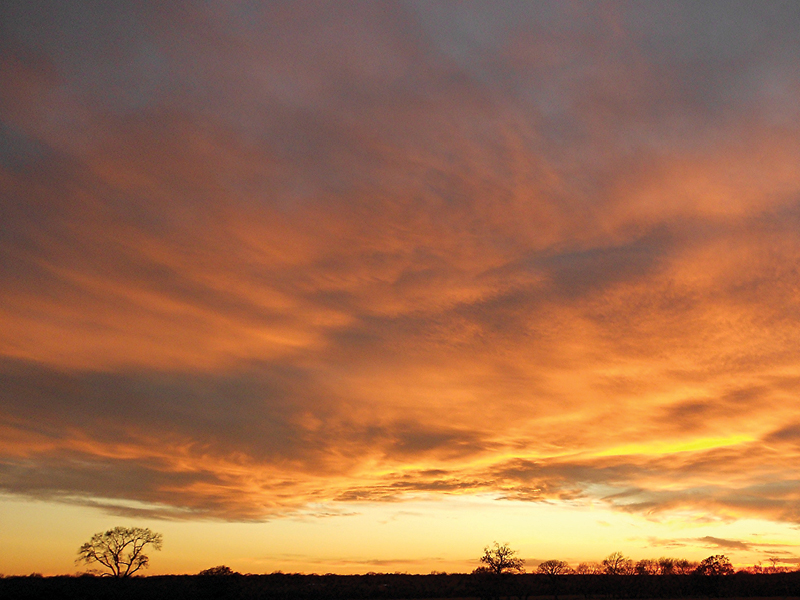By Tom Geddie
Part One
The old man woke up weak, weaker than usual, a bit overwhelmed by the bright of the sunlight coming through the window glass.
He knew that, if he spoke, his few words would be soft and slurred. By late morning, he thought he saw blackbirds gathering in the room – on the upright piano, on the radio, on the back of his worn, favorite chair.
By mid afternoon, still in bed, he thought he heard them begin to speak.
He thought he heard one ask, “Hasn’t he lived the best possible life?”
And one reply, “Yes, he has. In many ways, enviable.”
“He has loved and been loved.”
“But he has outlived them all.”
“All but one.”
“She was the most important of them all.”
“He hasn’t outlived his memories.”
“He’s tried to leave many of them behind.”
“Yes, many are lost.”
“All but a few.”
“He is tired.”
“Weary to the bone.”
“Is it time?”
The old man speaks for the first time that day, trying to tell them he’ll wait for those from his childhood who are coming.
Part Two
“How does it feel to be six feet under?”
“How would I know; I’m dead.”
“What do you think about?”
“How would I know; I’m dead?”
“What do you do with your time?”
“How would I know; I’m dead.”
“Pretend. How does it feel to be six feet under?”
“Dark.”
“What do you think about?”
“Time passing.”
“What do you do with your time?”
“Let it pass.”
(a brief silence)
“I dream all the time, but I never remember my dreams. I hear scratching sounds, but I don’t know what they are. Maybe the dreams of other people in the cemetery. Maybe it’s our tears trickling into lower places, cold, collected.”
“What do you miss the most?”
“Everything.”
“I have so many questions; this could go on forever, couldn’t it?”
“Who knows?”
Part Three
Less than a mile from where he grew up and died, and where he is buried in the Colfax cemetery near his parents, the Neches River begins its 416-mile history. The Neches comes up from deep in the ground to wander through Guthrie’s pastures of plenty, through loblolly, post oak, dogwood, pecan, and more — nurturing all of its life like a minor deity.
Down river, the land flattens into virulent swamp, the Neches lazes around cypress and Madonna trees. Birds and bullfrogs sing, water lilies dance with ’gators while a woodpecker goes on one of his drumming sprees.
The Neches, known to some as the last “wild” river in Texas, finds its own cemetery in the Gulf of Mexico (where its spirit merges with the world’s seas and oceans). It loses its self in the evidence of humankind’s exploitation born in the belief of divine rights and in greedy notions.
Water flows, and people pass into the earth.
The Clovis culture was here, along the Neches; it passed; the Caddo culture was here; it passed. The Spanish, with their missions, couldn’t hold the land. The white man spewed pollution for what he amassed. The pirates de Aury and Lafitte soiled the Neches; slave smuggling became part of the lower river’s dread. Logging upriver, rice down; the Spindletop oil boom, cities built from ammonia, phenol, sulfides, zinc, and lead.
Water flows, and people pass into the earth.
The Neches and its land challenge empty places in the human soul. Blues flourished here, an odd expression of hope; mountain sounds, too, calling love a “wounded heart.” My people came across the South from Cape Fear to harvest from the land, to live and die in this place, to learn that time becomes melody as much as rhythm near where the Neches begins its journey to disappear. Our father grew up on the farm, the son of a successful farmer, and eventually returned to the farmstead to finish his life with our mother. A quiet, patient man, he loved to work with his hands and to make music. He was 90 when he died in October 2011.
Water flows, and people pass into the earth.
Near where the Neches begins, I see light cling along the horizon at sunset. I see stars wink without regret. Often, I saw a willow dance. Once, I saw a rare moon’s eclipse the color of dried blood.
Water flows, and people pass into the earth.
Less than a mile from where I find myself, ghosts claim that water coming up from the ground is the cold, collected tears of the dead. I say the sweet, first taste of that clean water, as you bend to reach it, is closer joy. It is as close to first water, as close to pure, as we’ll ever find anymore.
Water flows, and passes into the earth.


